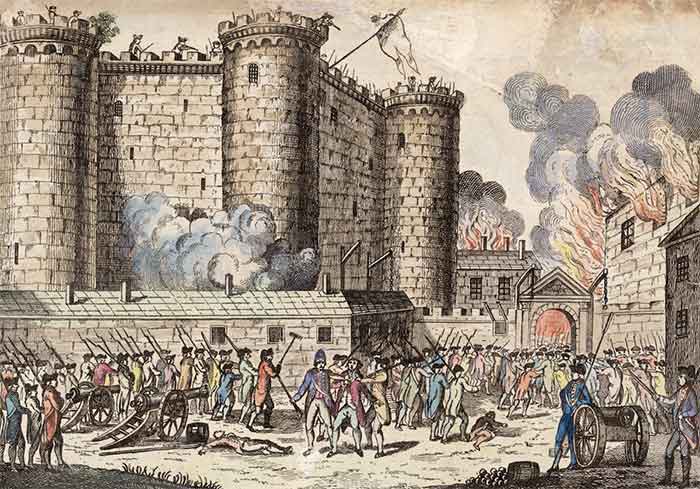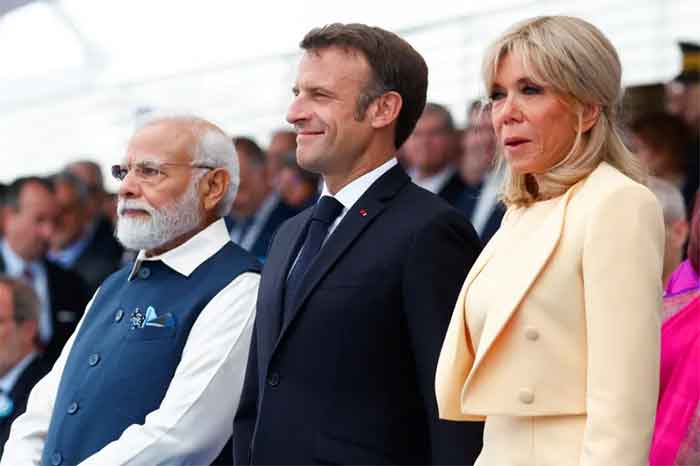
According to legend, Zhou Enlai, the first premier of the People’s Republic of China, when asked what he thought was the impact of the French Revolution of 1789, is supposed to have quipped, “It’s too early to tell”.
For quite a while, I took it as just another witty repartee from Comrade Zhou, with no special significance. Nowadays, I can see newer and newer meanings emerge from this cryptic response, whenever I chance upon it.
The deeper wisdom of his words hit me very recently while watching the obscene global media coverage of Queen Elizabeth’s passing away. And how the United Kingdom – supposedly home to one of the strongest liberal democracies anywhere – shamelessly dropped all other public priorities to mourn and fawn over its outgoing Queen and incoming King.
The British Queen may have her grace and charm (don’t ask Diana though!) and a reputation for kindness to her dogs and bees, but all this hype for a pampered royalty in this day and age? Tradition is all very well too, but why allow a family that has never worked a single day for a living to amass a fortune of over US$ 28 billion, mostly from inherited land holdings dating back to 1000 AD and old colonial loot?
And all this adulation and sham sorrow for a dead Queen coming at a time when the world is on the brink of nuclear war, climate catastrophe and as thousands go without food and shelter in Britain itself and millions more in its former colonies. It is almost as if the French Revolution, that overthrew monarchy and rolled the heads of royalty on the streets of Paris, made little difference even across the bloody English Channel!!
And this is one of the things that Zhou was probably pointing out to his questioner, “Yes, the French Revolution was historic but nothing changes so fast in human societies. So it is better to wait and watch and not jump to conclusions.”
The reason why the French Revolution from 1789 to 1799 was considered a seminal event in modern history was because it destroyed the power of oligarchies and feudal elites and established a nation of free individuals protected equally by the law. With its cry of ‘Liberty, Equality, Fraternity’ it ushered in a radically new era of republicanism, constitutional rule, universal human rights and secularism.
The revolution however descended into chaos due to factional infighting and lasted only a decade. Despite this, in the last two and a half centuries, the ideas and institutions it forged, inspired millions around the world and sparked great revolts leading to numerous anti-colonial struggles and movements against feudalism, slavery, colonialism, racism, and fascism.
None of this was easy and the battles to establish the values of the French Revolution were very often bloody and protracted. Yet they established new norms that defined the modern idea of what democracy, human rights or good governance really meant.
Today however, what we witness worldwide is nothing less than a total reversal of all the achievements of the French Revolution and that too on a grand scale. Forget liberty, equality or fraternity there is a brazen attempt by the rich and powerful to re-establish monarchy itself in a variety of ways.
One of these ways, of course, is by promoting monarchies directly, as in the case of Britain and its Anglo-Saxon sisters – Australia, New Zealand and Canada – where royalty is still the Head of State. Or in countries like Thailand where the monarch is considered an incarnation of God and worshipped by a brainwashed and subdued population.
However, the new royalty that truly dominates our times are from among those who control large corporations or wealth in highly concentrated form. It used to be the Fords and Rockefellers half a century ago and now it is the Elon Musks and Jeff Bezos’s – individuals who are a law unto themselves and often more powerful than many governments around the world.
And they are part of a larger trend in skewed distribution of wealth worldwide – that has created a new aristocracy, with the mass media as its clergy. According to the Credit Suisse Global Wealth Report in 2020, the world’s richest 1 percent, those with more than $1 million, owned 45.8 percent of the world’s wealth. In contrast the bottom half of the world’s population holds just 1.3 percent of global wealth.
Among industrial nations, the United States – which revolted violently against King and aristocracy during its war of Independence from Britain – is by far the most top-heavy, with much greater shares of national wealth and income going to the richest 1 percent than any other country. And this is the model for most countries – corporate monarchy that gives those with wealth unaccountable power.
And these older and new type of monarchies are bolstered by a special breed of imperious, right-wing politicians – representing racist, religious or nationalist lobbies of different kinds. These are completely whimsical characters frequently in and out of power – Donald Trump, Narendra Modi, Jair Bolsanaro, Victor Orban, Rodrigo Duterte – who may appear to be jokers but believe they are royalty themselves.
Backed by big moneybags – who want to escape public scrutiny or control- the real aim of such half-clown, half-royal characters is to destroy the modern idea of an elected parliament, an independent judiciary and governance on the basis of a written constitution – all institutions and principles innovated by the French Revolution.
While these sordid palace games continue, a bulk of humanity faces complete disaster – whether due to rising prices, spreading hunger or the impacts of climate change – ranging from extreme heat waves to flooding of Biblical proportions. In other words we seem to be back once again to the very same conditions in mid-eighteenth century France that led to the revolution.
And this is where Zhou’s comment takes on yet another important meaning. “Establishing liberty, equality, fraternity genuinely is not going to be achieved so easily. One French revolution is not enough, we need many, many more”.
Well, what about the socialist revolutions in Russia and China (in which Zhou had a leading role), which attempted to take the idea of equality even further, through the abolition of private property and the new, powerful state taking sole responsibility for the welfare of all its citizens?
The two revolutions undoubtedly did liberate very large numbers of people from oppression, within and outside their territories. They also brought a balance to the global power equation, dominated as it was by colonial, racist and imperialist nations that were unchallenged for centuries.
However, they too lost their way at some point by dropping ‘liberty’ and then ‘fraternity’ from their list of priorities – in order to fight real and imagined ‘counter-revolutionaries’. That, in turn, made it impossible to attain ‘equality’ either, with lifeless party bureaucrats finally taking over. Today, both Russia and China represent despotic systems that have none of the values of either the French or original socialist revolutions.
This is where Zhou’s advice about not being in a tearing hurry while judging history holds an even deeper truth about why revolutions often fail. It has to do with an aspect of human societies that many tend to forget easily – that we live in a really old world. The change that we hope and fight for or even see in our own lifetimes is easily reversible, because everything around us still rests on social and cultural templates that date back many millennia.
From the time of settled agriculture 10,000 years ago, we have been bound into familiar patterns of social customs, hierarchies, rites of passage, human relationships and even diets that are truly stubborn in their persistence. If one takes the entire history of biological evolution into account, the antecedents of our behaviour, attitudes and associated problems gets pushed back further into the darkest recesses of history.
All these forces operate 24X7, silently and often unseen as forces of erosion against radical change. If you don’t understand or take them into account all the grand edifices you construct are bound to fall sooner or later.
Yes, the world continues to be nasty place, so go ahead with your revolutions and fight the good fight – as they are essential to confront the worst of brutalities and oppression. At the same time do not search for ‘final solutions’ or try to set up any ‘permanent system’ that concentrates absolute power in the state, an organisation or any individual.
Democracy – its institutions and processes – is not just important on its own. It is also critical to protect change in the long run and make it resilient. If democracy is not at the heart of your struggles you will be condemned to repeat history again and again – as in a cyclical revolution that keeps coming back to the same starting point and not one that brings any lasting transformation.
Comrade Zhou would agree fully, if he could see his beloved China today from wherever he is now.
Satya Sagar is journalist who can be reached at [email protected]










































